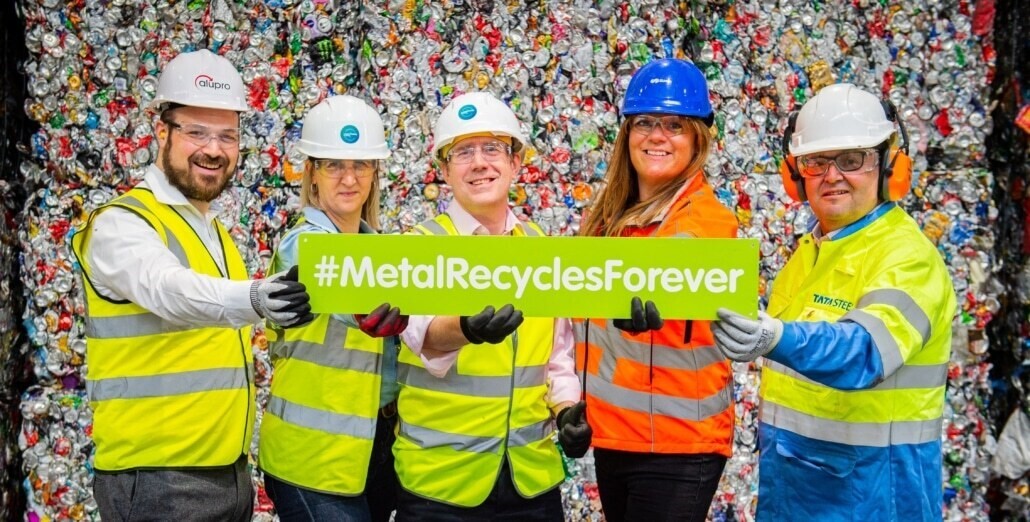您想继续阅读英文文章还
是切换到中文?
是切换到中文?

THINK ALUMINIUM THINK AL CIRCLE

In a bold step to boost the recycling of post-consumer aerosols (PCR), a three-month pilot project was kicked off on 2 June across Solihull in the West Midlands, England. Designed to uncover how aerosols are handled in household waste, the initiative will analyse kerbside collection data to paint a clearer picture of recycling habits.

Spearheaded by Alupro through the UK Aerosol Recycling Initiative (UKARI) and delivered in partnership with SUEZ Recycling and Recovery UK, the project involves a deep dive into fully comingled waste streams. The analysis will be carried out by Sherbourne Recycling, home to one of the most advanced materials recovery facilities in the world.
The key focus will be tracking how many aerosol containers are captured, sorted, and recycled, laying the groundwork for smarter, more effective recycling solutions nationwide. Aerosol cans are a growing segment in the metal packaging sector, with more than five billion units produced annually in Europe.
Overcoming challenges and creating opportunities
Upon completion of the initial analysis, a targeted communications campaign will be launched across households in the region to promote best-practice recycling guidance. Aiming to enhance public awareness and encourage positive behavioural change, the initiative will closely track data collection to assess the effectiveness of these outreach efforts. Insights gathered will be combined with findings from two additional local authority trials scheduled for later this year.
Together, these studies will evaluate the real-world impact of consumer education on recycling habits and offer a broader, more representative understanding of the UK's residual waste composition. Following the trials, Alupro and SUEZ will extend their collaboration to deepen their understanding of the challenges associated with sorting and analysing aerosols collected through kerbside systems. They will also explore and test practical solutions to boost national recycling rates.
Tom Giddings, executive director of Alupro, said, "Research suggests that householders are widely unsure about how best to recycle aerosols, sighting concerns over pressurised containers as a major factor. As a result, far fewer units are collected at the kerbside than most other forms of metal packaging. Gathering data and understanding waste composition is an important first step in tackling the issue. Thanks to our collaboration with SUEZ, we'll be able to not only access this valuable insight, but also test the direct impact of communications initiatives on consumer recycling behaviour."
Recycling scenario of UK
According to annual data from the Environment Agency's National Packaging Waste Database, the UK recycled 157,049 tonnes of aluminium packaging, including aerosol cans, in 2024. Despite rapid growth in the domestic market, collection rates kept pace. Of the total, 114,462 tonnes were recycled via kerbside, bring, and on-the-go collection systems, while 41,635 tonnes were recovered from incinerator bottom ash (IBA).
An additional 952 tonnes came from other recycling sources. The British Aerosol Manufacturers' Association (BAMA) reported a rise in the number of aerosol cans filled in the UK in 2024, indicating growing demand and potential for increased recycling.
Tom Merry, Commercialisation & Innovations Manager at SUEZ Recycling and Recovery UK, added, "In a post-DRS world, new targets set to be announced under EPR legislation will require 50 per cent of aluminium packaging (excluding beverage cans) to be collected for recycling. It's therefore imperative that we maximise the recycling rates of aerosols, through establishing a baseline recycling rate and improving public understanding. We're pleased to be working with Alupro to drive forward this initiative and aim to share best practice with the sector through our research findings."
Responses








